- Home
- Andrew Wareham
No Longer A Game (Innocents At War Series, Book 3) Page 5
No Longer A Game (Innocents At War Series, Book 3) Read online
Page 5
“I must admit that I thought it might be so when I read my newspaper on Sunday, Captain Arkwright. Will you then be returning to Wilton?”
“Why, yes, ma’am. I have no other place in England, and would much like to come back here.”
Monkey thought that to be very promising for a first conversation and took them along the road to complete their walk.
They flew the DH2s to the Central Aircraft Park at Amiens, expecting to be sent on to a waiting airfield. Unfortunately, the paperwork had not reached the base staff there and the initial reaction was to ground them until a specific order was sent; a colonel was loudly indignant that proper channels had not been followed.
Tommy was not surprised.
“Staff officers, Noah. The old verse still applies to them, you know.”
Noah nodded, raised a hand to conduct the brief song, squeaky tenor and approximate baritone alternating the lines.
“When in trouble,
When in doubt,
Run in circles,
Scream and shout.”
They bowed to each other and left the office, hurriedly. Tommy found a telephone and managed to get through to Maurice Baring, aide to Trenchard and distinguished for being a gentleman and intelligent, simultaneously.
“Sorry to bother you, sir. Just been sent across from Airco with a pair of DH2s, as I imagine you will know. Here at Amiens they know nothing of us and want to send us back as surplus to establishment.”
The gentle, polite voice was not raised, although permitting just a tinge of surprise.
“Stay exactly where you are, Major Stark. I have small doubt that Brigadier Trenchard will be interested in what you have to say. You will ensure that your machines are refilled and ready to fly, won’t you.”
Tommy put the apparatus down and nodded towards the Transient Officers Mess.
“Time for a cup of tea, Noah. We might order a bun, as well, though we may not have time to eat it.”
Twenty minutes later a red-faced colonel stamped through the door and shoved a piece of paper into Tommy’s hands.
“You are due at Three Squadron. I don’t know why you are here at all. Goodbye!”
“Thank you, sir. A very good day to you as well, sir.”
They left, dropping into the office of the captain who was in control of movements to inform him that they were about to take off.
“There should be a party of four mechanics as well, sir. Sent out from Airco yesterday specifically to service our machines. Please ensure that they reach our destination, quickly.”
“Well, I don’t know about that, Major Stark…”
Tommy glanced at the signature on the document in his hand.
“Speak to Colonel Bressinghall. He has just received very specific orders from Brigadier Trenchard, who, I understand, is rather anxious that we should be assisted on our way.”
“Ah! Tell me, Major Stark, just how red in the face was the colonel?”
“Puce, verging on purple, I would say. What’s your opinion, Noah?”
“Scarlet in places – apart from the nose, of course, too many broken veins there to give a definitive answer.”
“Then I do not think it wise to intrude upon him for the while, Major Stark. He will be restoring his equilibrium by lowering the level of his whisky bottle, just now. Four mechanics, you say… Sergeant!”
A young NCO put his head through the door.
“Four mechanics from Airco, sent across to work with the pair of DH2s. Do you know where they are?”
“Sergeants Mess, sir.”
“Excellent! They should be at Three Squadron. In fact, we sent them there yesterday.”
“Very good, sir. We have a vehicle to hand, sir; their own. They brought a substantial consignment of spares and tools with them, sir, none of which has been offloaded.”
“Jolly good show, Sergeant. Send them away instantly. Do they have a driver?”
“He slept in the lorry with a rifle, sir. That’s why it was not unloaded.”
“Initiative! That’s what I like to see. Send them off, for me. Stop behind the Officers Mess, if you would be so good, and we shall find a carton or crate of something or the other to keep them sweet. I’ll go across and organise that now. Inform the fuel dump that the DH2s are to be refuelled, with immediate effect.”
“Done, sir, already.”
“Damned efficient of you, Sergeant, to carry out my order before it’s given.”
“Thank you, sir. Major Stark gave the order when he landed.”
“I did not know he had the authority to give any orders to my staff?”
“A slight mix-up, sir.”
The captain gave up; he was not going to win any argument with an experienced NCO without resorting to a full disciplinary process, and if he did that he could forget about any willing cooperation in the future.
“Carry on, Sergeant.”
The sergeant gave a crisp salute and left.
“Weather is good, gentlemen, and Three Squadron is still where it used to be, so there is nothing to delay you.”
They left as well.
“Does it occur to you, Tommy, that it might be an idea not to come back here in the reasonably near future?”
“Words of wisdom, Noah. Direct to 3 Squadron or should we have a look at the trenches first?”
“Direct to 3 Squadron, Tommy. Trenchard will have been on the telephone to them, I suspect, and they will be waiting for us.”
“More words of wisdom. Is the carton still in your cockpit?”
Noah took a look and nodded.
“Mine, too. I had thought it might have offered too great a temptation.”
Each had twelve bottles of whisky tucked in beside the seat, strapped against turbulence on the flight across.
Thirty minutes flying time took them to the old field, empty of machines; they had wondered if the squadron might have been grounded, flying BE2cs as it did.
Tommy caught Noah’s eye, signalled line abreast and then twirled a finger round to signify a circuit of the field; he lifted his Very pistol, watched Noah do the same and pointed out to the side. The pair of green flares cracked into life almost simultaneously. They had agreed at Amiens to state their presence to the machine-gunners at the field; this was not a time to land unknown aircraft unannounced.
They landed together and taxyed to the hangars; there were a few familiar faces among the mechanics and riggers but most were new hands. It was unlikely that there had been casualties, so it was probable that most of the men who had come out in August ’14 had finally been posted home.
“Two cartons, sergeant,” Tommy said to the nearest mechanic. “One to the Officers Mess, the other to the Sergeants.”
“Thank you, sir. Much appreciated!”
Captain Alford, the Adjutant, reached the hangar, limping slowly, using the walking stick he had been in the habit of carrying, Tommy noticed.
They exchanged salutes, being in front of Other Ranks and feeling that they should show willing.
“Are you well, Adj?”
“Almost ready for the knacker’s yard, Tommy. Congratulations on fatherhood, by the way; ah, I see your closest friend is with you! How are you, Noah?”
“Bloody newspapers!”
“Tut – a source of great amusement to us. We fight one war and they another; it is interesting to see who is winning.”
“What are your losses, Adj, before I face Major Lewis?”
“Five in two weeks, Tommy. Fokkers weren’t introduced in our sector until recently. We lost Colin – the rest were all new boys, come and gone in a week, in one case in a day. Poor sod’s batman never had time to get him fully unpacked. Orders are that squadron commanders are grounded, by the way, which is not popular. Are these the forefront of the new pursuit planes, Tommy?”
“No. Two for testing, and we shall probably be recalled within two weeks. Manufacturing shortages, Adj. You won’t see any flood of new machines this side of Christmas.”
�
�Chances are there will only be me and the Major left in the squadron by then, Tommy.”
“No engines, Adj. These DH2s have got rotaries as a result. Have you got the new pans for the Lewis Gun?”
“Mr May has them, tucked away in his store. He was working all night in his Armoury.”
“Wicked old man! I shall have to lay my hands on a bottle or two for him. Is Smivvels here? Did they send him back or post him elsewhere from the Bombardment Fiasco?”
“He is here, and spare at the moment, there being a surplus of batmen. I will give him to you for the duration of your stay; arranged it already, in fact, and a man for Noah.”
“Thank you. Life is easier with a familiar idiot at one’s side.”
“Thank’ee, Tommy,” said Noah, tugging at his forelock.
“My pleasure, young fellow!”
“Nothing changes, I see,” Alford commented, turning with difficulty to walk across to the Squadron Offices with them. “Except this.” He patted his left leg. “Knee won’t move any more. Back to good old England next week, to the RFC hospital for what, I am humorously informed, is termed an ‘exploratory operation’. Simply expressed, the quacks are going digging to see what they can discover; archaeology in its modern form. The doctor at base gives me a fifty percent chance of keeping the leg; he thinks I will do better without it.”
“God bless modern medicine!”
“A hundred years ago they would have amputated within minutes of seeing the injury. Had I survived surgery, I think I might have been better off! They are sending a temporary replacement for me, who will become permanent if need arises.”
Tommy could think of nothing useful to say; rarely, he had the sense to make no comment at all.
“We are three short of pilots, Tommy. What’s the position in Training? How soon can we expect replacements?”
“Too soon, Adj! They will send them out within the hour of going solo. Literally.”
“Which explains much. I thought they had ended that habit with the extra fields for training in England. The word we were given was that the whole system had been ‘modernised’.”
“It has, but it’s still useless, and murderous! I am told – how accurately, I don’t know - that we are killing more in training than die at the airfields in France. Add to that, the word is that over here you are losing more to accidents than to the Hun.”
Captain Alford nodded.
“We have no dual control machines, no way of training boys on types they have not previously flown. I am told that we have lost more than one half of the Bristol Scouts to accidents. The Parasols are getting fewer and fewer for the number being bent by their pilots. I told you of the lad who came out last week – forget his name now – who was brought across in the morning, flew a BE2c in the afternoon and was killed inside his first hour in the air. We have a Lewis in the observer’s cockpit now – this lad saw a Fokker a half mile distant, so the rest of his Flight said, and turned towards it, trying to bank his plane to give the observer the chance of a shot.”
“Poor little chap! No one told him that ‘he who fights and runs away…’”
“Lives to get shot down tomorrow, Tommy!”
They reached Major Lewis’s office and Tommy stood to attention, thinking the man had earned his respect. He was shocked to see that Lewis, in his early thirties, was showing grey in his hair, had aged ten years in appearance since he had seen him in his Brooklands days.
“Come in, Tommy, and you, Noah, isn’t it? Good to see that some old faces still survive! What’s the word on these new planes?”
“Rotary engined pushers, sir. Absolute bastards to fly. Probably a little faster than a Fokker and certainly less stable, more able to stunt. Provided the pilot has time to take from actually keeping them in the air, he should be able to defeat a Fokker. We are here to see what’s possible. There won’t be as many as a full Flight out here before Christmas for lack of engines and the need to train pilots up to fly them. Top men like Lanoe Hawker and Louis Strange might be able to sit in them and take them into action within the day, but most who tried that would end up dead, quickly.”
“What do you want to do?”
“Go out as a pair for a couple of days, to see what’s what. Then perhaps fly escort to some of your machines – I don’t know if it’s possible to do it. Can a plane fly as a protector, like the old frigates did at sea in Nelson’s day? The idea sounds good, but I don’t know if it’s even possible in the air.”
“Worth a try, Tommy. Give the boys sent out from training the chance to live for long enough to become useful, if it is practical. Had one lad sent to us last week – boy by the name of – I’ve got it here somewhere, I wrote the letter to his parents yesterday – here it is, Banks. Died inside the day.”
“Banks – a pleasant youngster, and a natural flier. I had hopes for him. He was one of mine as a trainee.”
“Yes, he mentioned that he had met you, was proud to have been sent to your old squadron. Any suggestions for what we might try, Tommy?”
“Fly in pairs of Flights, sir. Eight planes up, six of them circling, two observing; you might just be able to catch any Fokker coming in. Crossfire from two or three guns. The Fokkers are slow machines, after all.”
Major Lewis shook his head.
“Orders are that we must complete all observation tasks, every day. If that needs eight planes to make two patrols apiece, each on its own, then so be it.”
“That will bury you all before Christmas, sir.”
“Trenchard knows that, but he still insists that we must meet every request from Army. The RFC exists to serve the Army, he told me – and, of course, he is right. Where he is less than correct is his insistence that we shall ‘pay any price’ to achieve our aims. As far as he is concerned, death is part of war; the price of victory is expressed in human life, and the higher something is priced, the more it is worth.”
Tommy thought about that for a few seconds, assimilating its implications.
“The man’s a bloody maniac!”
“He is also a close ally of General Haig. God help us all if – when – those two share command.”
“I am not a drinking man, sir, but that is a prospect that could drive me to hide inside a bottle. Enough, sir. We have your approval for our proposed course of action? I intend to fly as much of tomorrow as I can, starting at dawn. It has been made clear, in an oblique fashion, that the politicians and newspapers wish to hear of enemy aircraft destroyed, ideally ‘sent down in flames’. Achieve that end and there will be money found by the Treasury to build new planes, and engines; more young men will be brought forward to train as pilots; our voice will be listened to – the RFC’s voice that is, not mine. Allow the series of defeats in the air to continue and the politicians will decide that flying has nothing to offer to the war.”
“Let it be so Tommy. What do you need from my mechanics?”
“Very little, I hope, sir, other than access to the machine-tools in the hangars. There is a lorry on its way from Amiens now containing four mechanics from Airco and a couple of tons of spares, and I hope a barrel of beer and a carton or two besides. They know that they must grease their way. The Airco men are civilians, by the way, sir. A word to the Warrant Officer and to the military police?”
“Several words, Tommy. Short words and in brief sentences – so that I may be understood. That will be done as a matter of urgency. I will talk to poor old Alford immediately.”
They dined as guests of the Mess, no comments made about the collection of medal ribbons on Tommy’s chest but the occasional eyebrow raised at the DSO won in England. Drinking was heavy, most of the pilots polishing off a bottle of table wine before punishing the port and then crowding round the bar.
“Only way most of them can get any sleep, Tommy. Go out in the morning and cheer them up, old chap. Chances are you won’t see a Fokker – we only meet up with them once or twice in a week. So butcher an Aviatik or Rumpler if you get the chance, or one of those pecu
liar twin-boomed bombers we hear so much of, and see so infrequently. Some very public successes, well in sight of our balloons, will be popular.”
“Cynical, sir?”
“Very, but one of the lads taking off last week shouted ‘morituri te salutamus’ at me.”
“I did not study a lot of Latin, sir, not going to school…”
“’Those about to die salute thee’ – attributed, probably falsely, to gladiators about to enter the Circus. Probably incorrect, as well – should be ‘salutant’, but who is a scholar, these days?”
“Not me, sir – how’s your Latin, Noah?”
“I’ll finish learning English first, old chap.”
“I never started.”
They took off, Lewis Guns loaded with the new, larger pan and three spares for reloads placed vertically in the rack below the gun.
“Four by ninety-seven, Tommy – that’s three hundred and eighty-eight rounds. If you’re close enough, twenty-five is sufficient for a kill – do they reckon we’re good for a squadron each?”
“Not at all, Noah! They’ve seen you shooting and want to make sure you have enough!”
They circled the machines and decided that all of the obvious bits were in place and quietly grinned at the expression on the faces of the two Air Mechanics, Third Class, lowest of the low, who were to start their engines. There was not a vast amount of space between the spinning propeller and the tail assembly, and the mechanic must duck underneath, quickly, to get out of the way after starting.
“Draw lots for that job, Tommy!”
“Not my idea of fun, Noah!”
They had inquired about changes on the Front, were told that the trenches had not moved since last they had seen them, ‘just a few more corpses left out in between the lines’.
They patrolled up and down the trenches for nearly two hours, and saw nothing in the air, other than large quantities of black smoke from the anti-aircraft guns which had proliferated in the months they had been away. The sights and rangefinders had not improved, however, and it was still the case that a change in height of a couple of hundred feet was enough to throw them off.
They returned to refuel and empty their bladders, both procedures very necessary.

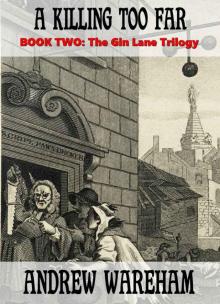 A Killing Too Far
A Killing Too Far Killing's Reward
Killing's Reward A New Place
A New Place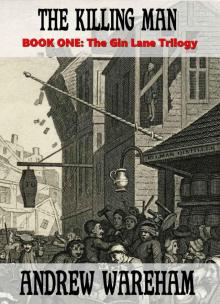 The Killing Man
The Killing Man Bold and Blooded
Bold and Blooded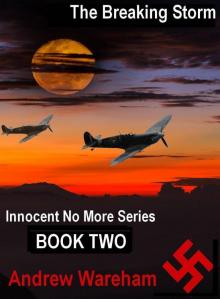 The Breaking Storm (Innocent No More Series, Book 2)
The Breaking Storm (Innocent No More Series, Book 2) Nobody’s Child
Nobody’s Child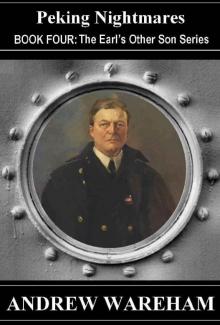 04 Peking Nightmares (The Earl’s Other Son Series, #4)
04 Peking Nightmares (The Earl’s Other Son Series, #4)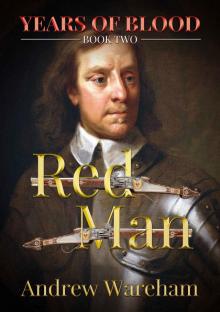 Red Man
Red Man Foreign Mud
Foreign Mud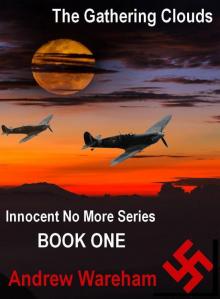 The Gathering Clouds (Innocent No More Series, Book 1)
The Gathering Clouds (Innocent No More Series, Book 1)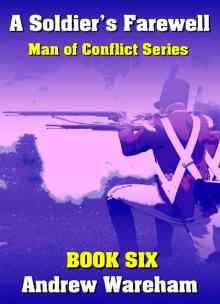 06 A Soldier’s Farewell (Man of Conflict #6)
06 A Soldier’s Farewell (Man of Conflict #6)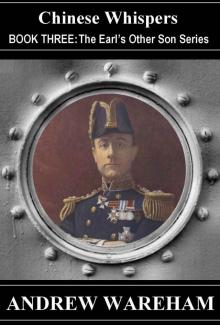 Chinese Whispers
Chinese Whispers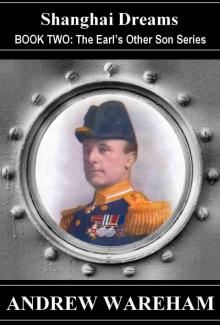 02 Shanghai Dreams (The Earl’s Other Son #2)
02 Shanghai Dreams (The Earl’s Other Son #2)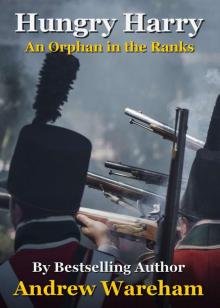 Hungry Harry: An Orphan in the Ranks
Hungry Harry: An Orphan in the Ranks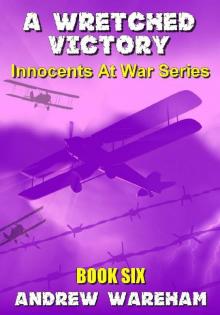 A Wretched Victory (Innocents At War Series, Book 6)
A Wretched Victory (Innocents At War Series, Book 6)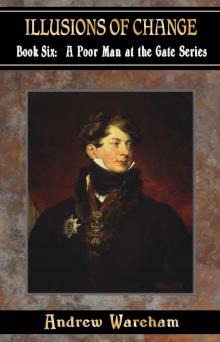 Illusions Of Change (A Poor Man at the Gate Series Book 6)
Illusions Of Change (A Poor Man at the Gate Series Book 6)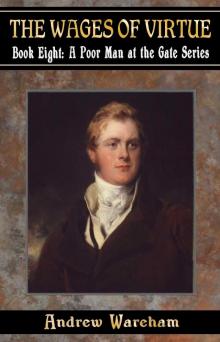 The Wages Of Virtue (A Poor Man at the Gate Series, Book 8)
The Wages Of Virtue (A Poor Man at the Gate Series, Book 8)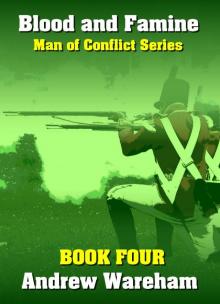 Blood and Famine (Man of Conflict Series, Book 4)
Blood and Famine (Man of Conflict Series, Book 4)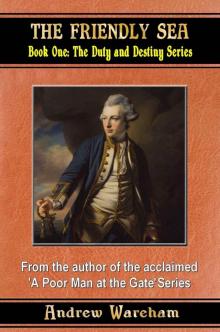 The Friendly Sea (The Duty and Destiny Series, Book 1)
The Friendly Sea (The Duty and Destiny Series, Book 1)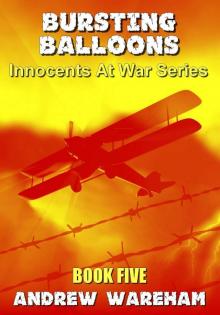 Bursting Balloons (Innocents At War Series, Book 5)
Bursting Balloons (Innocents At War Series, Book 5)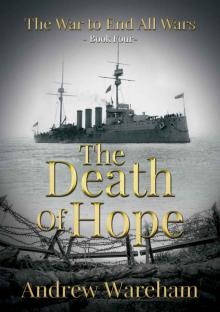 The Death of Hope
The Death of Hope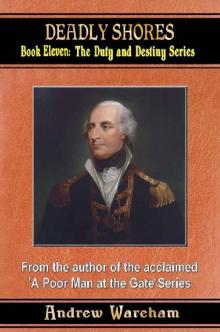 Deadly Shores (The Duty and Destiny Series, Book 11)
Deadly Shores (The Duty and Destiny Series, Book 11)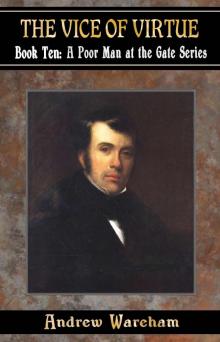 The Vice Of Virtue (A Poor Man At The Gate Series Book 10)
The Vice Of Virtue (A Poor Man At The Gate Series Book 10) Virtue’s Reward (A Poor Man at the Gate Series, Book 11)
Virtue’s Reward (A Poor Man at the Gate Series, Book 11)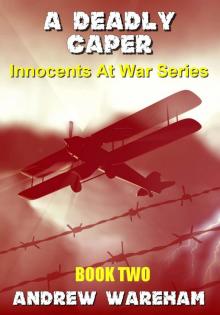 A Deadly Caper (Innocents At War Series, Book 2)
A Deadly Caper (Innocents At War Series, Book 2)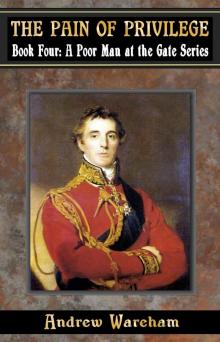 The Pain Of Privilege (A Poor Man at the Gate Series Book 4)
The Pain Of Privilege (A Poor Man at the Gate Series Book 4)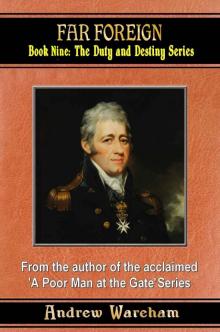 Far Foreign (The Duty and Destiny Series, Book 9)
Far Foreign (The Duty and Destiny Series, Book 9)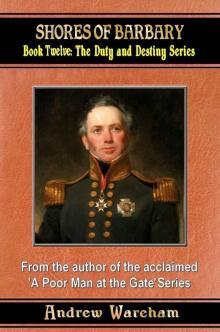 Shores of Barbary (The Duty and Destiny Series, Book 12)
Shores of Barbary (The Duty and Destiny Series, Book 12)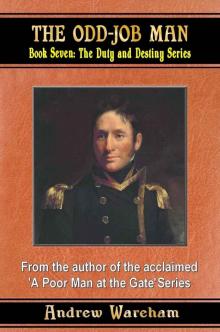 The Odd-Job Man (The Duty and Destiny Series, Book 7)
The Odd-Job Man (The Duty and Destiny Series, Book 7)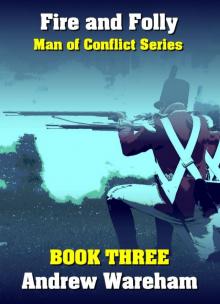 Fire and Folly (Man of Conflict Series Book 3)
Fire and Folly (Man of Conflict Series Book 3)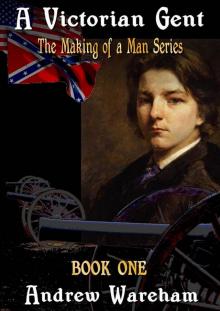 A Victorian Gent (The Making of a Man Series, Book 1)
A Victorian Gent (The Making of a Man Series, Book 1)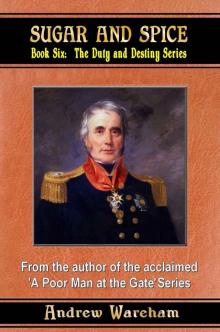 Sugar and Spice (The Duty and Destiny Series, Book 6)
Sugar and Spice (The Duty and Destiny Series, Book 6)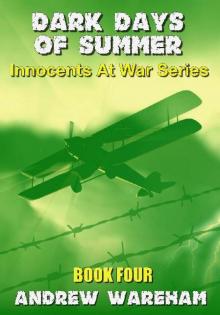 Dark Days Of Summer (Innocents At War Series, Book 4)
Dark Days Of Summer (Innocents At War Series, Book 4)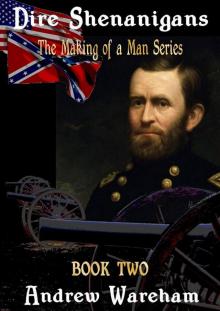 Dire Shenanigans (The Making of a Man Series, Book 2)
Dire Shenanigans (The Making of a Man Series, Book 2)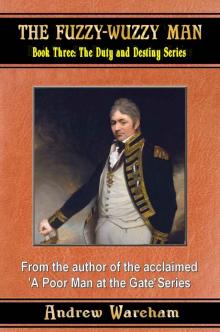 The Fuzzy-Wuzzy Man (The Duty and Destiny Series, Book 3)
The Fuzzy-Wuzzy Man (The Duty and Destiny Series, Book 3) Privilege Preserved (A Poor Man at the Gate Series Book 5)
Privilege Preserved (A Poor Man at the Gate Series Book 5)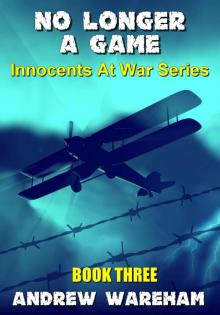 No Longer A Game (Innocents At War Series, Book 3)
No Longer A Game (Innocents At War Series, Book 3)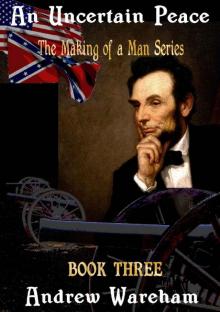 An Uncertain Peace (The Making of a Man Series, Book 3)
An Uncertain Peace (The Making of a Man Series, Book 3)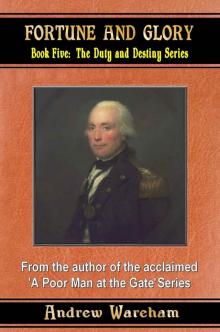 Fortune And Glory (The Duty and Destiny Series, Book 5)
Fortune And Glory (The Duty and Destiny Series, Book 5) The Old Order (A Poor Man at the Gate Series Book 7)
The Old Order (A Poor Man at the Gate Series Book 7) A Place Called Home (Cannibal Country Trilogy, Book 2)
A Place Called Home (Cannibal Country Trilogy, Book 2) Nouveau Riche (A Poor Man at the Gate Series, Book 2)
Nouveau Riche (A Poor Man at the Gate Series, Book 2) The Privateersman (A Poor Man at the Gate Series Book 1)
The Privateersman (A Poor Man at the Gate Series Book 1)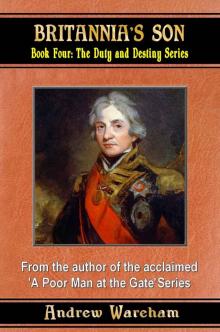 Britannia’s Son (The Duty and Destiny Series, Book 4)
Britannia’s Son (The Duty and Destiny Series, Book 4) Long Way Place (Cannibal Country Trilogy, Book 1)
Long Way Place (Cannibal Country Trilogy, Book 1)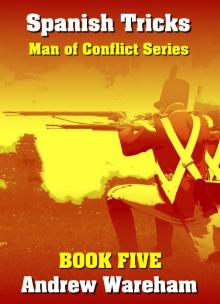 Spanish Tricks (Man of Conflict Series, Book 5)
Spanish Tricks (Man of Conflict Series, Book 5) A Parade Of Virtue (A Poor Man At The Gate Series Book 9)
A Parade Of Virtue (A Poor Man At The Gate Series Book 9)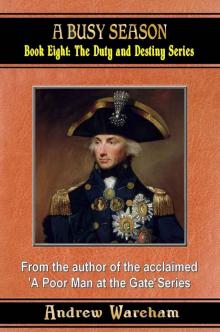 A Busy Season (The Duty and Destiny Series, Book 8)
A Busy Season (The Duty and Destiny Series, Book 8)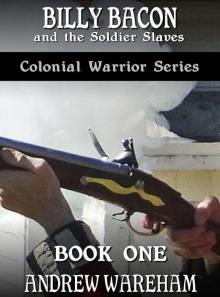 Billy Bacon and the Soldier Slaves (Colonial Warrior Series, Book 1)
Billy Bacon and the Soldier Slaves (Colonial Warrior Series, Book 1)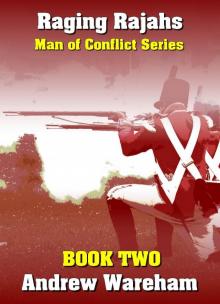 Raging Rajahs (Man of Conflict Series, Book 2)
Raging Rajahs (Man of Conflict Series, Book 2)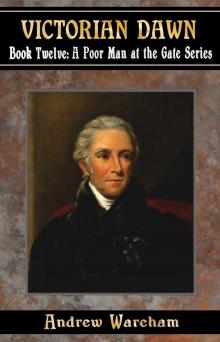 Victorian Dawn (A Poor Man at the Gate Series, Book 12)
Victorian Dawn (A Poor Man at the Gate Series, Book 12) Born To Privilege (A Poor Man at the Gate Series Book 3)
Born To Privilege (A Poor Man at the Gate Series Book 3)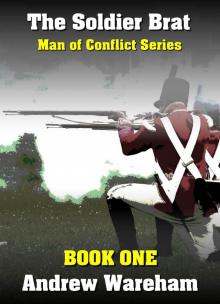 The Soldier Brat (Man of Conflict Series, Book 1)
The Soldier Brat (Man of Conflict Series, Book 1)